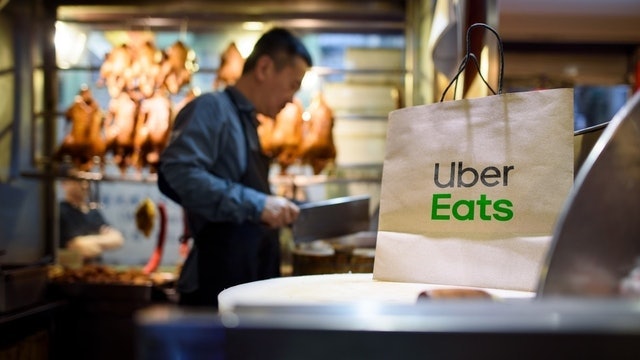Eight departments including the Ministry of Transport of the Mainland, the Central Cyberspace Administration of China, and the Ministry of Human Resources and Social Security jointly issued the "Opinions on Strengthening the Protection of the Rights and Interests of Employees in the New Type of Transportation" (hereinafter referred to as " Opinions), to urge online car-hailing platform companies to account for the commission to drivers, so as to ensure reasonable labor compensation for drivers and strengthen anti-monopoly law enforcement.
This is after the guidance issued in July this year on effectively safeguarding the rights and interests of food delivery staff, the mainland regulatory authorities have again recruited and regulated platform companies.
The platform economy has not only revolutionized business and work patterns, but also increased the exploitation of employees. New regulations are needed to fill loopholes.
Hong Kong’s food delivery platform companies have recently experienced ups and downs. Uber Eats announced the end of its food delivery service. The outside world is concerned that the remaining two platforms will take the opportunity to reduce delivery staff benefits.
The Hong Kong government should not neglect, and should increase the work and social security of this group of workers.
The Mainland requires platform companies to account for the commission
The overall goal of the "Opinions" is to establish a system for protecting the rights and interests of online car-hailing drivers. The platform must explain the pricing and income distribution rules to drivers and passengers, especially the platform's commission, and the proportion of the commission must be disclosed and capped.
In addition, the platform requires drivers who are self-employed to participate in social insurance, ensure that drivers are paid reasonably, and disclose the rules for calculating remuneration. The rest time must be sufficient and drivers must not be tempted to work overtime by means of redemption rewards. Driver scores cannot be related to working hours, Linking with the dispatch system, cracking down on monopolies, encouraging drivers to join trade unions, etc.
The review of platform companies such as Didi and Meituan means that China's platform economy has entered the era of standardized management.
(Associated Press)
In July of this year, the mainland government departments have established a series of regulations for catering platform companies. For example, the "strictest algorithm" must not be used as an assessment requirement, and the reasonable number of orders for delivery couriers must be determined through methods such as "algorithm". , On-time rate, online rate, and moderately relax delivery time.
Prior to this, the mainland food delivery platform giant Meituan disclosed the order allocation mechanism, such as the order to whom the order was sent based on the shortest distance and sufficient time, and the restaurant could report the meal status, so as not to wait for the delivery staff.
The mainland government used two opinions to stop the platform from evading the employment relationship to save labor costs, and taking a large amount of money to take away the results of labor, so that the use of algorithms to constantly urge drivers and outbound couriers to work.
The platform economy has provoked labor conflicts, and there are many examples around the world. However, the efforts of the mainland government to rectify can be described as accurate and extensive. When Hong Kong’s food delivery platform companies experience shocks and the delivery staff’s treatment has the opportunity to be exploited again, the Hong Kong government should Protect their rights as early as possible.
Platform practitioners must be industrious and valuable
Uber Eats, one of the three major local food delivery platforms, announced that it will terminate its operations in Hong Kong at the end of the year and focus on developing the Uber Taxi market.
Of course, the local new crown epidemic is stable, the demand for food delivery is declining, and the market statistics that the local Uber Eats' revenue share in the first four months of this year is only about 5%. It is estimated that the company decided to withdraw due to difficult competition.
Uber Eats earlier revealed that there are 700 delivery personnel, and perhaps many of them are serving on other platforms at the same time, and may not directly lose their jobs due to the end of the business.
What is more worthy of attention is whether the remaining two main platforms will be more likely to reduce the income of the delivery staff due to the reduction of competitors.
Uber announced on November 30 that it will terminate the operation of the Uber Eats platform in Hong Kong at 11:59 pm on December 31.
(Profile picture)
It is true that food delivery is an open industry and it is quite easy to become a deliveryman. When the number of people is large and the number of orders drops, the platform will tend to lower the delivery fee to reduce expenses, and the deliveryman will continue to take orders in order to grab the order and the unit price is low.
However, if the delivery staff’s income decreases, they will need to work longer to maintain their income. This is a big blow to full-time food delivery people.
Of course, Hong Kong cannot copy the regulatory measures of the Mainland, but at least it must review the situation of platform economic workers, such as requiring companies to formally hire full-time delivery personnel as employees, so that employees can receive basic monthly salary, security and MPF, etc. Welfare.
The government should also negotiate with the food delivery platform to fully inform the delivery staff of the service fee calculation formula, the dispatch mechanism and the percentage ratio so that the delivery staff can plan the workload and remuneration in advance, and compare which platform values the return of labor.
The platform economy is becoming more and more popular in Hong Kong, and the two main takeaway platforms alone have about 40,000 couriers, accounting for 1% of the workforce.
The labor and welfare departments still underestimate the disputes arising from the platform economy. They lag behind the regulatory trends of local governments, and it is also difficult to implement the value education that has just been reformed. When students and young people realize that hard work may not be equal in return, how can they agree Other values?
The Foodpanda labor tide ends, the platform worker problem is unresolved, and the platform economy has exploded in labor disputes. The government should start to reform and regulate the platform economy. It should be antitrust that the Internet barbaric era is over



/cloudfront-eu-central-1.images.arcpublishing.com/prisa/3I74UEXLYRBBRPGPSGWNN6WXH4.jpg)



